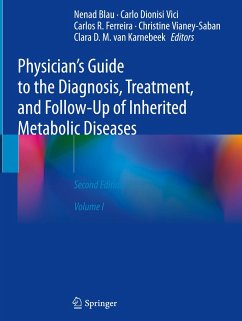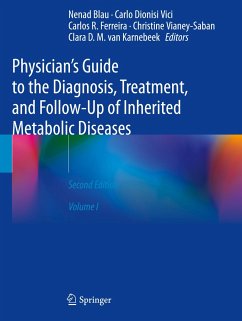
The Busy Physician's Guide To Genetics, Genomics and Personalized Medicine
Versandkostenfrei!
Versandfertig in 6-10 Tagen
151,99 €
inkl. MwSt.
Weitere Ausgaben:

PAYBACK Punkte
76 °P sammeln!
In the coming decade, the focus of medicine will shift from a disease-oriented approach, where the physician prescribes according to the disease the patient has, to a personalized approach, in which the physician first considers the patient's individual biochemistry before prescribing a treatment. Personalized medicine has the potential to improve efficacy and safety in virtually all fields of medicine. Unfortunately, few physicians feel confident in their ability to apply the principles of genetics and genomics upon which personalized medicine is based to their practice. This book is intended...
In the coming decade, the focus of medicine will shift from a disease-oriented approach, where the physician prescribes according to the disease the patient has, to a personalized approach, in which the physician first considers the patient's individual biochemistry before prescribing a treatment. Personalized medicine has the potential to improve efficacy and safety in virtually all fields of medicine. Unfortunately, few physicians feel confident in their ability to apply the principles of genetics and genomics upon which personalized medicine is based to their practice. This book is intended to help the practicing physician understand and apply the principles of genetic and genomic medicine, regardless of his/her level of background in the field. It provides a thorough foundation/review of classical genetic principles, with an emphasis on how these principles apply to personalized medicine and common complex diseases. In addition, it provides a wide-ranging review of the inroads that personalized medicine has made into several fields, including cancer, psychiatric disorders, cardiovascular disease, substance abuse, Alzheimer disease, respiratory diseases, type 2 diabetes and macular degeneration. Most importantly, this book is intended to enable the practicing physician, physician assistants and their entire healthcare team to anticipate the developments that will emerge in the near future, and stay current with the field as it expands.














